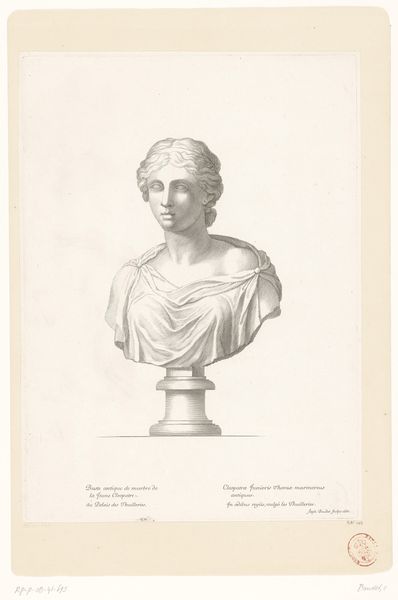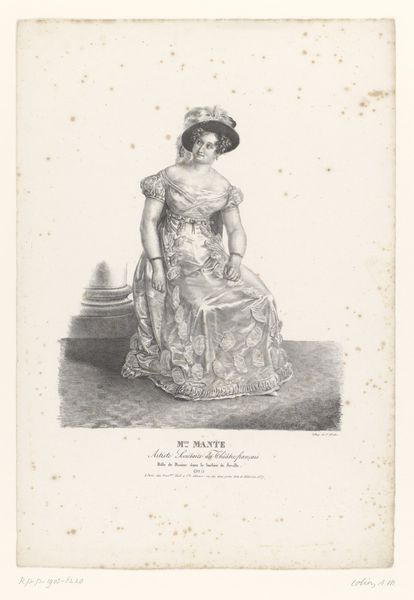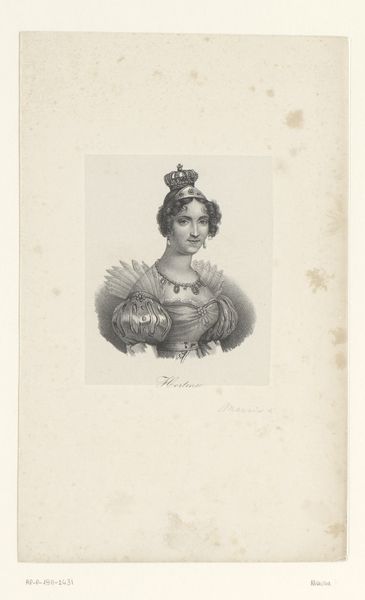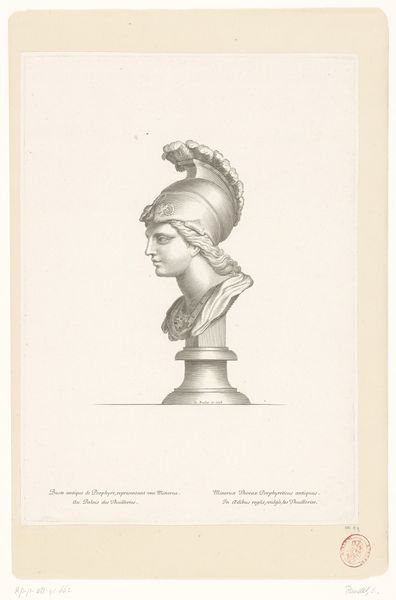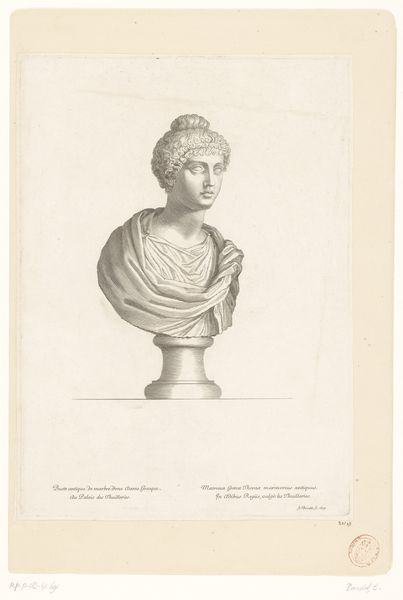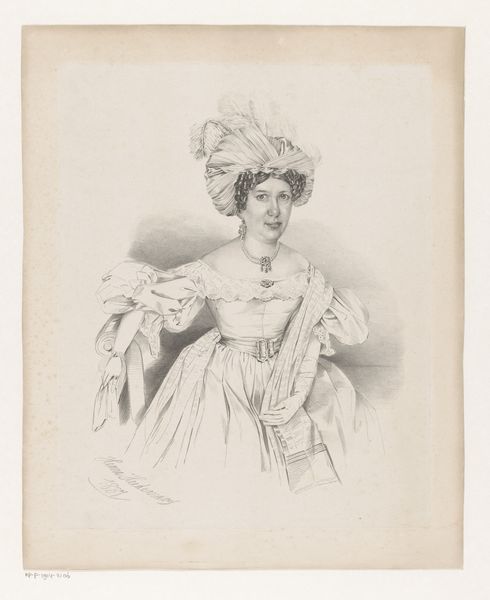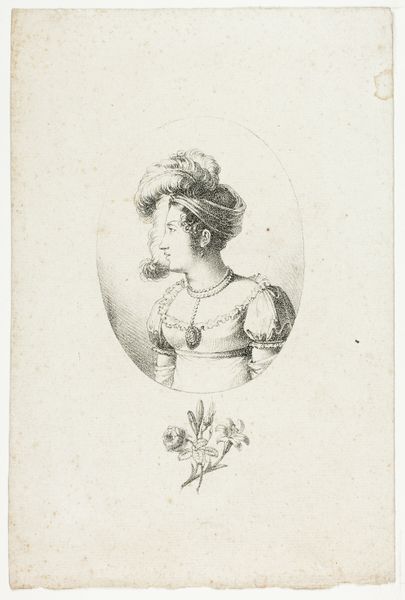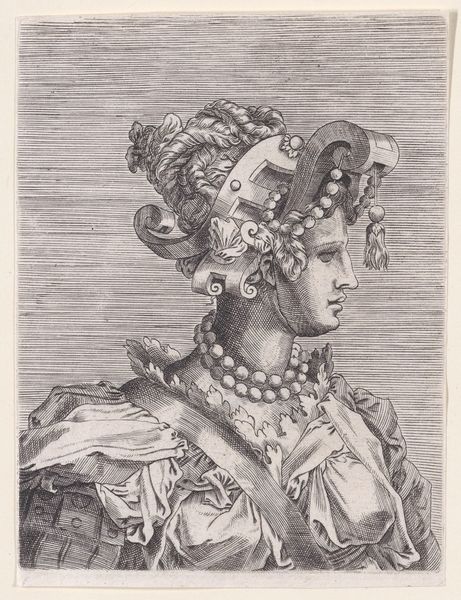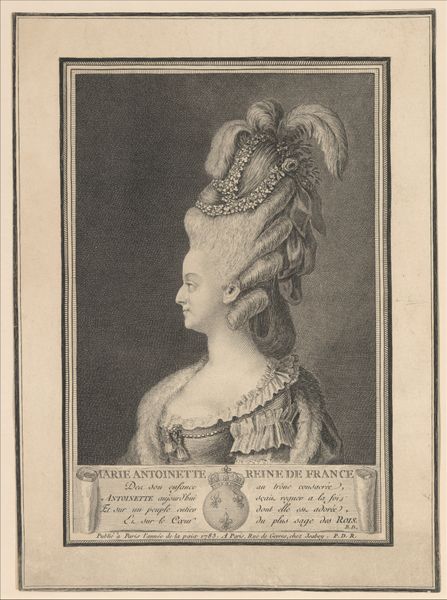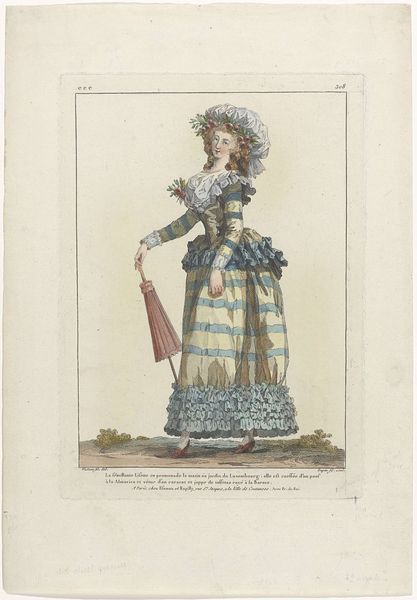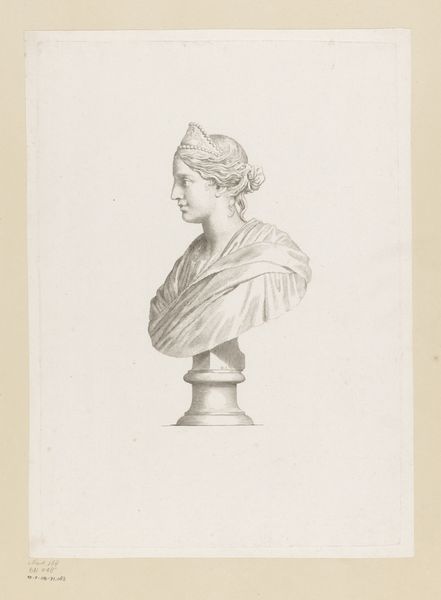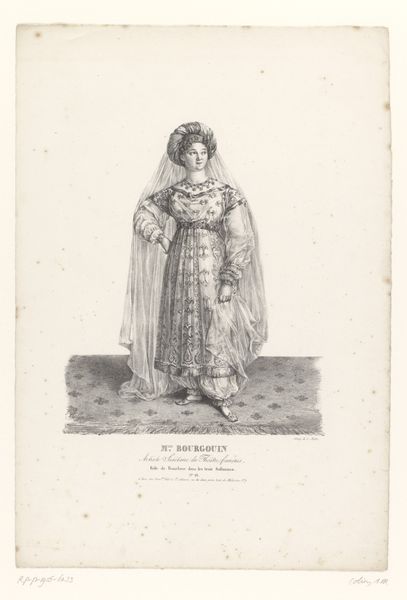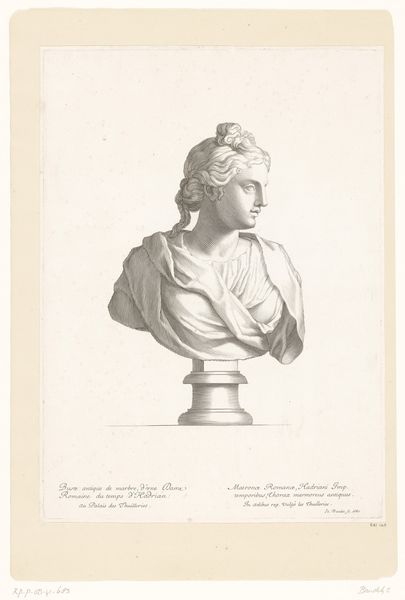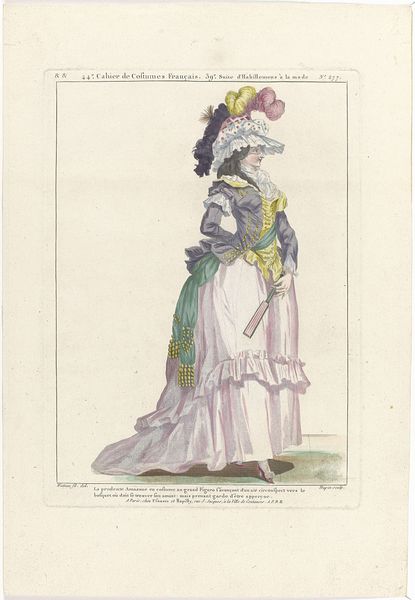
print, engraving
#
portrait
#
baroque
# print
#
old engraving style
#
caricature
#
classical-realism
#
figuration
#
ancient-mediterranean
#
history-painting
#
engraving
#
realism
Dimensions: height 392 mm, width 282 mm
Copyright: Rijks Museum: Open Domain
Etienne Baudet created this engraving of an ancient bust of Alexander the Great in the late 17th-early 18th century. The bust presents Alexander in military attire, complete with a helmet and scale armor adorned with a Gorgon's head. This Gorgon, typically Medusa, is a powerful apotropaic symbol meant to ward off evil. We can see iterations of this symbol across millennia and cultures. From ancient Greek temples to Renaissance shields, Medusa's image is consistently employed to protect and instill fear in enemies. Interestingly, the use of such symbols speaks to a deep-seated psychological need for protection. Throughout history, we see the recurrence and adaptation of protective symbols, reflecting a collective human desire to confront and control the unseen forces that threaten us. The image of Medusa, then, isn't merely an artistic motif, but a potent emblem of humanity's enduring relationship with fear, power, and the subconscious. Its cyclical presence reminds us of the continuous interplay between past and present in shaping our cultural symbols.
Comments
No comments
Be the first to comment and join the conversation on the ultimate creative platform.
